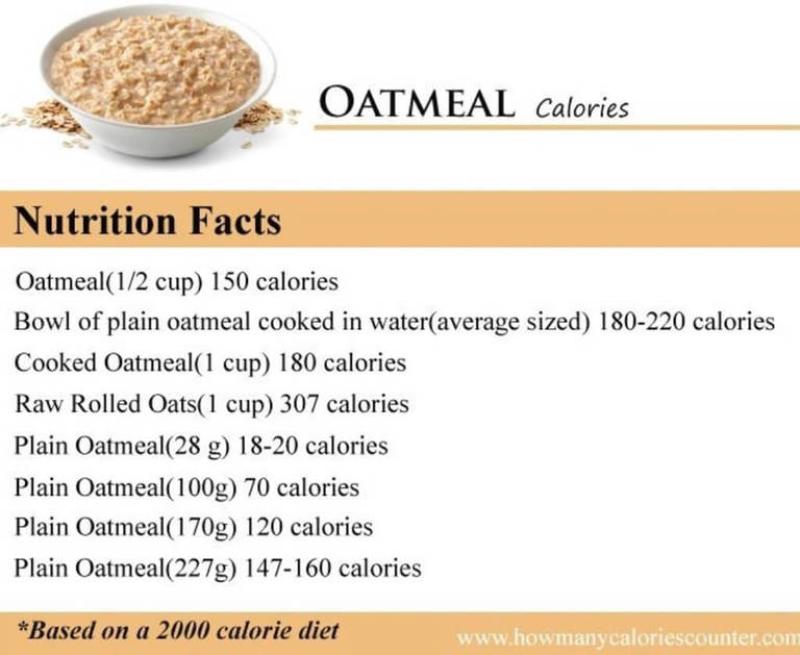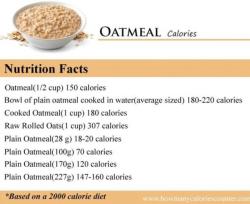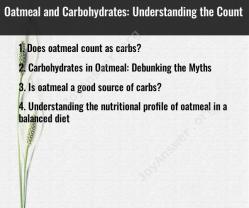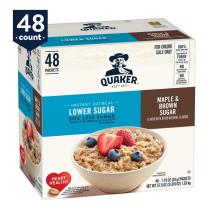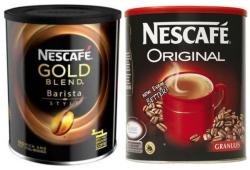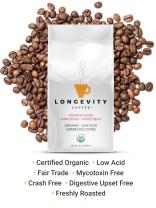What are the nutritional facts in oatmeal?
Oatmeal is a nutritious whole grain that provides various essential nutrients. The nutritional content of oatmeal can vary depending on the type of oats and any added ingredients. Here is a general overview of the nutritional facts for a typical serving (1 cup or 234 grams) of cooked oatmeal made from rolled oats and water:
- Calories: Approximately 147 calories
- Protein: About 5.9 grams
- Carbohydrates: Around 25.3 grams
- Dietary Fiber: Roughly 4 grams
- Sugars: Approximately 0.4 grams
- Fat: About 2.5 grams
- Saturated Fat: Approximately 0.5 grams
- Monounsaturated Fat: Around 0.9 grams
- Polyunsaturated Fat: Approximately 0.8 grams
- Cholesterol: Nearly 0 milligrams
- Sodium: Around 3 milligrams
- Potassium: Approximately 107 milligrams
These values are based on plain, cooked oatmeal without the addition of milk, sweeteners, or other toppings. It's important to note that the nutritional content can change based on the specific type of oats used (e.g., rolled oats, steel-cut oats, instant oats) and any additional ingredients.
Oatmeal is a good source of complex carbohydrates, dietary fiber, and protein. It also provides various vitamins and minerals, including manganese, phosphorus, magnesium, and B vitamins.
If you customize your oatmeal with toppings like fruits, nuts, seeds, or sweeteners, keep in mind that the nutritional values will be influenced by these additions. Always check the nutrition label on the packaging for specific products, as different oatmeal brands and varieties may have varying nutritional profiles.
Analyzing the Nutritional Facts of Oatmeal
Oatmeal, a simple breakfast staple, packs a powerful punch when it comes to nutrition. Beyond its filling fiber content, it offers a wealth of vitamins and minerals essential for good health.
1. Debunking the Nutritional Benefits:
Here's a breakdown of key nutrients found in a ½ cup (dry) serving of Old Fashioned Oats:
- Calories: 150
- Fiber: 4 grams (14% DV)
- Protein: 5 grams (10% DV)
- Fat: 3 grams (4% DV)
- Manganese: 63% DV
- Phosphorus: 13% DV
- Magnesium: 13% DV
- Copper: 13% DV
- Vitamin B1 (Thiamine): 20% DV
- Iron: 12% DV
- Selenium: 11% DV
- Zinc: 8% DV
(DV: Daily Value)
2. Vitamin and Mineral Powerhouse:
Oatmeal shines with its impressive blend of vitamins and minerals:
- Manganese: Supports bone health, metabolism, and antioxidant function.
- Phosphorus: Plays a crucial role in bone health, energy production, and cell repair.
- Magnesium: Promotes muscle function, blood sugar control, and healthy blood pressure.
- Copper: Aids in enzyme function, collagen production, and immune system support.
- Vitamin B1 (Thiamine): Crucial for energy production, nervous system function, and heart health.
- Iron: Transports oxygen throughout the body, preventing anemia.
- Selenium: Protects cells from damage and supports thyroid function.
- Zinc: Boosts immune function, wound healing, and taste perception.
3. Integrating Oatmeal into a Healthy Diet:
Oatmeal's versatility makes it easy to incorporate into a healthy diet:
- Breakfast: Pair it with fruits, nuts, seeds, or protein sources like yogurt or eggs for a balanced and satiating meal.
- Snacks: Whip up quick and healthy energy bites with rolled oats, nut butter, dried fruit, and spices.
- Baking: Use oatmeal flour in pancakes, muffins, or cookies for a fiber-rich boost.
- Soups and stews: Thicken up soups and stews with cooked oats for added texture and nutrition.
Beyond its delicious taste, oatmeal's impressive nutritional profile makes it a valuable addition to your dietary plans. Remember, portion control is key, and consider adding toppings that align with your specific health goals to optimize the benefits of this simple yet powerful grain.
Do you have any specific questions about incorporating oatmeal into your diet or about its suitability for any dietary restrictions? I'm happy to help!
